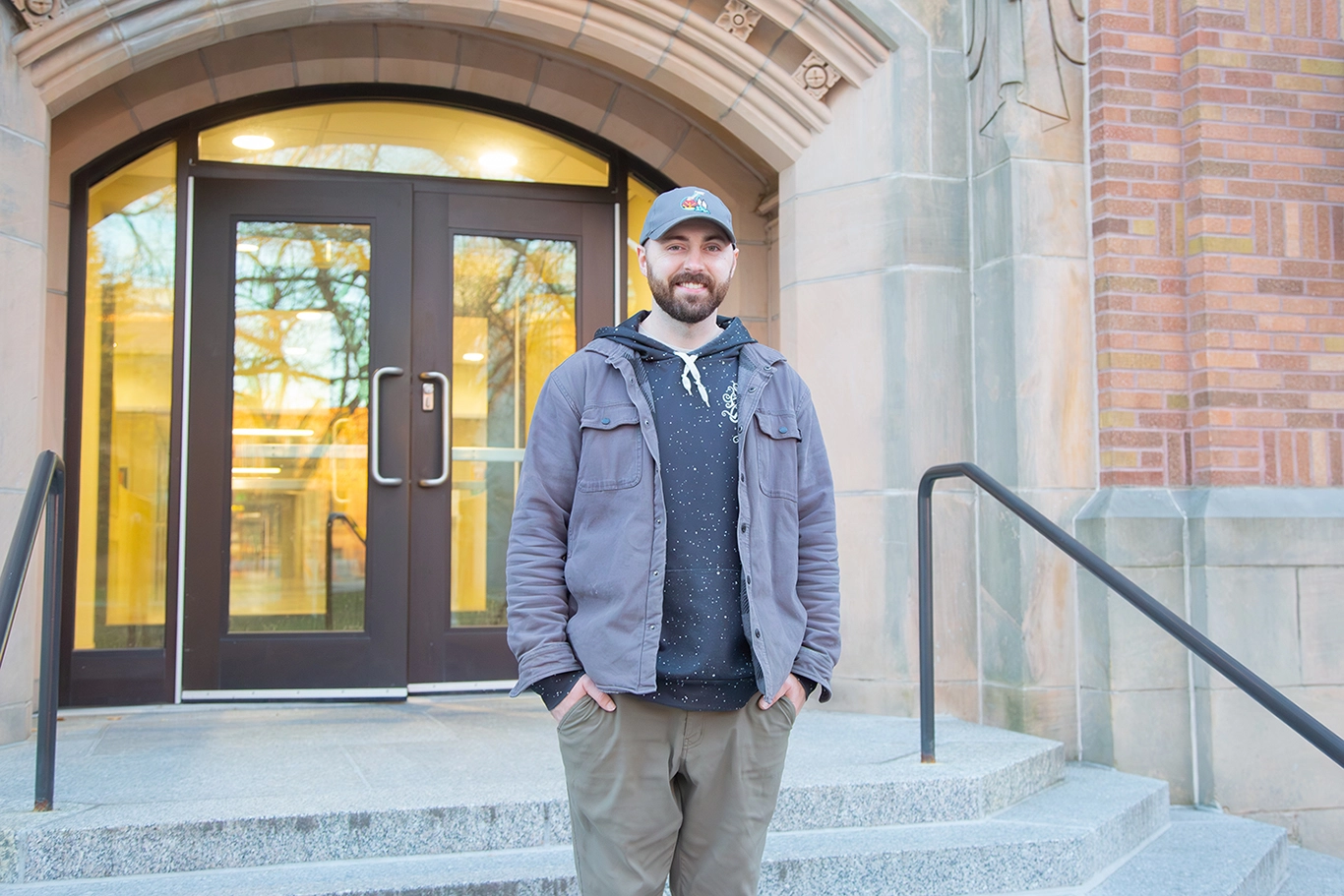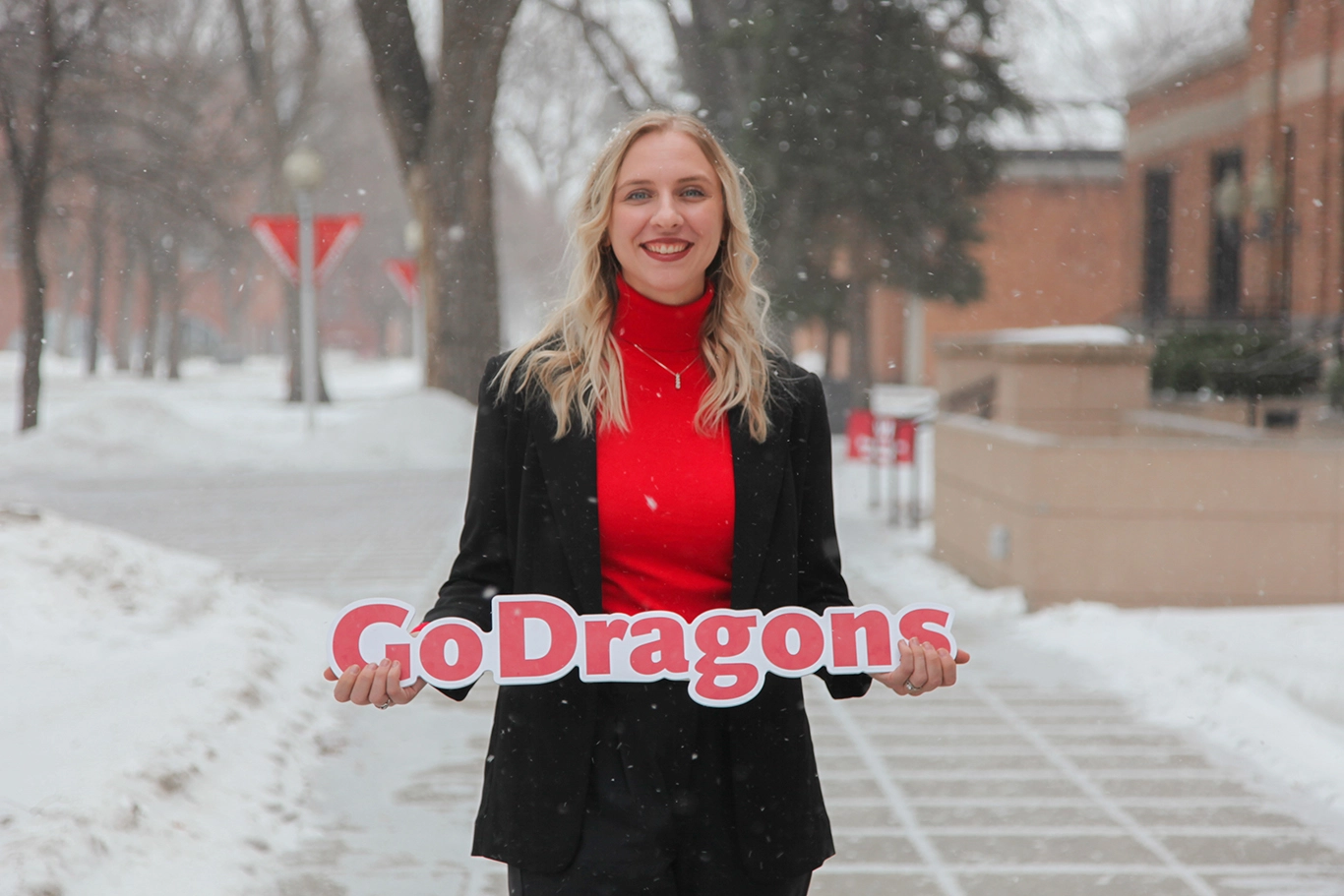Alumna on Pulitzer Prize-winning team for George Floyd and related story coverage
Shari Gross received her first press pass from the Star Tribune after volunteering to take an assignment nobody else wanted.
Her willingness to look for opportunities paid off this year when she and her colleagues at the Minneapolis paper won journalism’s highest honor. The Star Tribune staff won a Pulitzer Prize for coverage of the George Floyd murder in Minneapolis and the reverberations that followed.
“We knew it was crucial to cover the story from all angles and to get it right,” Gross says. “It is an incredibly important story, and I got to be involved. How lucky am I?”
Gross started at the Star Tribune in March 2008. She monitored video equipment and edited the videos that still photographers shot and brought back to the newsroom. She wasn’t a recognized journalist with a press pass until she volunteered to record the implosion of the Xcel Energy 570-foot-tall smokestack of the High Bridge power plant in St. Paul one Saturday morning.
Since then, she’s worked as a visual journalist who does everything from shooting and editing her own videos and photographs to writing the articles that may accompany them.
“I’ve taken every ounce of opportunity I’ve been given and run with it … because you can,” she says. “This is my dream job.”
Throughout the summer of 2020 after Floyd’s death, Gross worked mostly days – her assigned shift.
Gross’ first involvement in the ongoing story was the day after Floyd died. The initial police report wasn’t clear, and Darnella Frazier’s video, which showed former Minneapolis police officer Derek Chauvin kneeling on Floyd’s neck, hadn’t been released yet.
Gross was sent to the scene of the death – and later, the protests – every day.
“I got all the feel-good ‘look at the community coming together’ stories,” she says. But she also heard and saw stories that reflected how hurt and scared members of the community were.
Some of her coworkers who covered the nighttime protests were shot with rubber bullets and injured.
“It was difficult to know my coworkers were in the midst of that while I was getting ready to work the next morning. But someone needed to work the morning shift. Other news stories don’t stop,” she says.
The local story soon ignited a global protest movement for racial justice. Gross says that the Star Tribune had access to the local people, unlike national and international news organizations. In addition, reporters had built relationships with people before Floyd’s death and the protests.
Gross graduated from MSUM with degrees in English and mass communications. On campus she worked for the student newspaper, The Advocate, and learned how to accept critiques of her work.
After graduation, she struggled to find a newspaper job, so she moved back home to Bismarck, N.D., where she joined the CBS affiliate as a commercial copy scriptwriter.
At the television station, Gross’ colleagues invited her to attend commercial shoots. They taught her how to use a camera and light scenes, and how to edit. Because it was a small station, she was soon asked to shoot commercials and then news. She started her own news segment on animals and wildlife.
The experience eventually led her to move to the Twin Cities metro area. She took a job at a marketing company until she landed her position at the Star Tribune.
Gross doesn’t remember how she learned that the Star Tribune staff won a Pulitzer Prize. Because of the COVID-19 pandemic, most journalists have been working from home. As a result, group celebrations have been difficult.
And yet, Gross will never forget being a part of a story bigger than herself. At Floyd’s funeral, she heard the Rev. Al Sharpton, the civil rights activist, say that the late Floyd changed the world.
“Maybe it started in Minneapolis, and we were there,” Gross says. “As a journalist, you can't not take that seriously. That’s why we worked so hard.”
Star Tribune’s Pulitzer Prize Award-Winning Work
Make Sure Your Story Is Heard
Let us know how your life has been changed by being a Dragon: tell us your Minnesota State Moorhead story today!
Send Us Your Story


